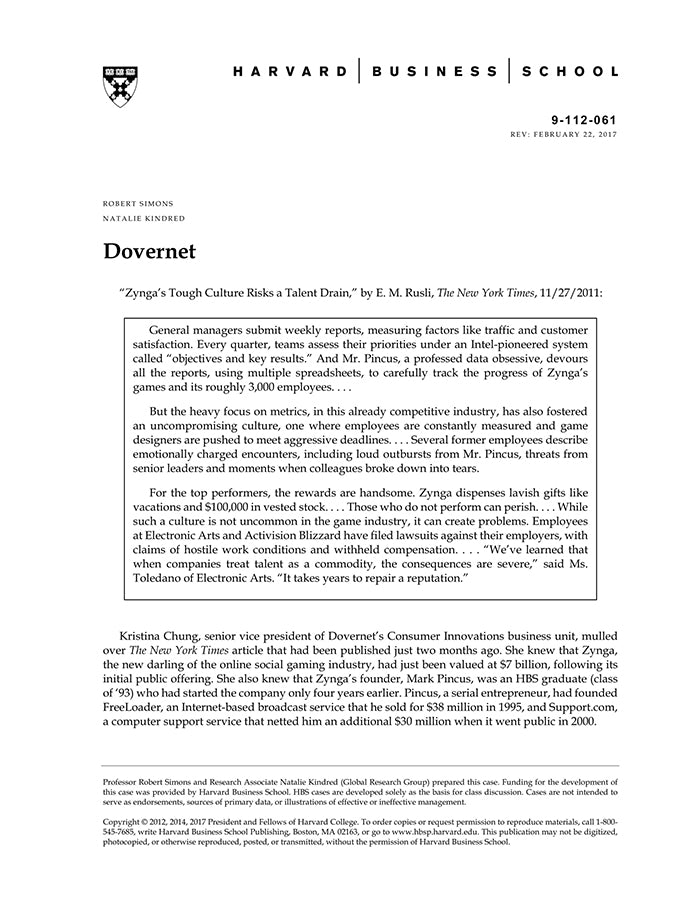Dovernet
受取状況を読み込めませんでした
This case illustrates the implications of using stringent performance measurement systems to create performance pressure, motivate employee achievement, and sharpen a firm's competitiveness. It opens by describing the downsides of the ruthlessly competitive culture at Zynga, a young, successful online gaming company. A similar data-driven performance measurement system is employed at Dovernet, a Vancouver-based provider of enterprise communications and social-networking technologies. Dovernet's founder and CEO sees performance measurement systems as vital for cultivating the competitive, innovative workforce necessary for Dovernet to win in a fiercely competitive industry. Dovernet uses quarterly top-down reviews and stack ranking (with major implications for bonuses), as well as bottom-up reviews, to reward top achievers and put low performers on notice. The practical challenges of applying this system are illustrated in three brief vignettes. In the first two, students can assume the role of a manager charged with interpreting and acting on the negative reviews given to two employees with unique (but are they mitigating?) personal circumstances. The third vignette puts students in the role of an employee conducting a bottom-up review, as he struggles to balance honesty with the potential repercussions of giving his manager less-than-perfect feedback. The case allows students to consider the benefits and risks of different performance evaluation strategies and their implications for a firm's performance, culture, and employee morale. Are there certain types of firms or industries for which such systems are more appropriate? Do the integrity and effectiveness of a performance measurement system depend on managers' applying cold objectivity, or is there room for flexibility? In highly competitive industries, can firms lacking a strong performance emphasis beat competitors like Dovernet and Zynga?
【書誌情報】
ページ数:11ページ
サイズ:A4
商品番号:HBSP-112061
発行日:2012/4/27
登録日:2012/7/17


